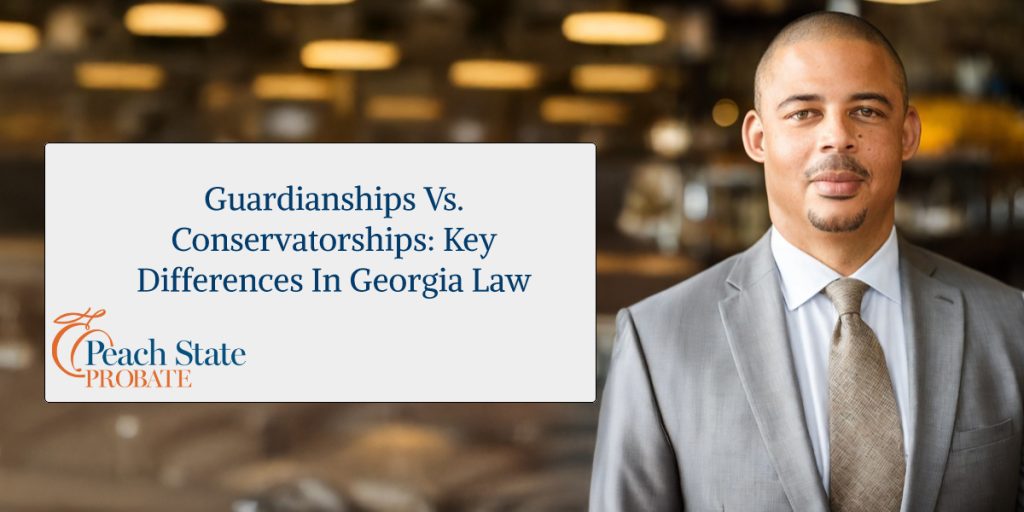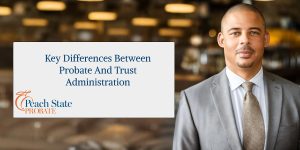When faced with the prospect of caring for a loved one who can no longer make critical decisions, understanding the roles of Guardianships and Conservatorships is vital. These legal frameworks play a significant part in protecting vulnerable individuals, often stepping in when someone is unable to manage their health or finances due to age, injury, or disability. Navigating Guardianships and Conservatorships can be emotionally challenging; families want to help, but the rules and responsibilities can seem overwhelming. The legal landscape in Georgia has its unique features, making it essential to grasp the differences between these two protective arrangements. By empowering yourself with knowledge, you will be better prepared to approach these circumstances with confidence and compassion, ensuring your loved one’s best interests are protected at every turn.
Understanding the Essentials of Guardianships and Conservatorships
Guardianships and Conservatorships in Georgia exist to shield those who cannot care for themselves or manage their financial affairs. In general terms, a Guardianship gives a responsible adult the authority to make personal and healthcare decisions for someone deemed incapacitated, often referred to as a ward. For example, if an elderly parent is diagnosed with dementia and cannot make choices about living arrangements or medical care, the court may appoint a guardian to act in their stead.
Conversely, a Conservatorship primarily deals with financial matters. If an adult suffers a traumatic brain injury and is unable to pay bills, handle investments, or protect assets, a conservator can be appointed to oversee these important responsibilities. While the roles sometimes overlap, Guardianships look after daily well-being, and Conservatorships protect financial security. By distinguishing between the two, families and professionals can make informed decisions that support a loved one’s dignity and safety.
The Importance of Guardianships and Conservatorships in Everyday Life
Deciding whether a Guardianship or Conservatorship is needed touches many lives, especially in rapidly aging communities like Sandy Springs. These legal tools not only prevent exploitation or neglect but also provide loved ones and caretakers with clear authority to intervene when necessary. When responsibilities are formally defined, families can act decisively—be it seeking appropriate medical care or preventing financial missteps that could otherwise jeopardize a vulnerable person’s safety.
Without clear legal direction, assets can be lost, relationships strained, and critical decisions delayed. On the other hand, when the right plan is in place, individuals who cannot advocate for themselves are protected, and family conflicts often diminish. Let’s consider a few possible situations to highlight these impacts.
- A daughter worries her elderly mother is being financially pressured by a new acquaintance. Without a conservatorship, she cannot directly intervene, potentially leading to significant financial loss.
- A spouse is hospitalized after a stroke and cannot communicate. Without a guardianship, important health decisions are delayed, and his condition may worsen as a result.
- An adult with intellectual disabilities requires ongoing support. Without guardianship, the person may struggle with daily living, resulting in neglected health and safety.
Step-by-Step Overview of the Guardianship and Conservatorship Process in Sandy Springs
- Step 1: Identify the need by observing the individual’s inability to manage personal care or finances. Family members, friends, or professionals may raise concerns.
- Step 2: File a petition with the probate court, outlining circumstances and presenting evidence of incapacity. The court reviews information for accuracy and seriousness.
- Step 3: Attend a hearing where the judge hears testimony and examines facts. If approved, the judge formally appoints a guardian, conservator, or both.
Effective Strategies for Managing Guardianships and Conservatorships
Your Top Questions About Guardianships and Conservatorships in Sandy Springs Answered
How Peach State Probate Law Group Makes a Difference for Families
The team at Peach State Probate Law Group is dedicated to guiding families through the complexities of Georgia’s guardianship and conservatorship laws. With years of specialized experience, the firm provides comprehensive support that extends far beyond simply filing paperwork. From the first consultation, clients are given a clear explanation of their options, practical guidance through each procedural step, and ongoing advice to navigate changing needs over time. Their compassionate approach ensures that clients feel confident and informed, while robust legal strategies are tailored to each family’s unique challenges. By entrusting these legal matters to Peach State Probate Law Group, families gain not only results but also peace of mind, knowing their loved ones’ welfare and financial security are top priorities.




